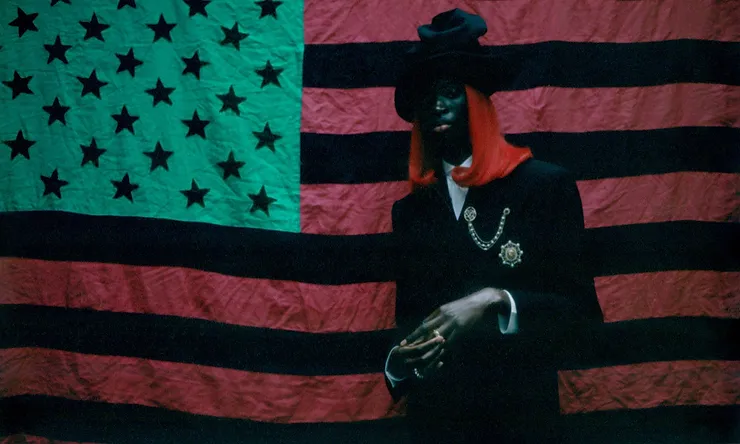
America and Europe are not my centre, so unless there is an electoral candidate who is proposing an end to the genocides in the Congo and Palestine, for liberation and an end to capitalism, patriarchy, racism, and imperialism with decolonial black radical structures that centres love for all, then I feel we get two similar sides of the same coin. Kamala Harris had two good days of good press this ‘Brat summer’, then as she released her statement on the Union Protest for Palestine on July 25th 2024 we were brought back to reality. I want to add this article is not about not voting or being apathetic, the truth is that it is either Trump or Harris, vote Harris, this is not something we need to discuss at length the why. This article hopes to shed light on uncomfortable truths and inspire us to think differently about how we can organise, and the different options we could utilise.
The Democratic Party was founded in 1828, whilst the Republican Party dates back to 1854. In their early years, the Republican Party was considered liberal, whilst the Democrats were known for their conservatism. When founded, the Democratic Party identified itself as the “white man’s party”, demonising the Republican party for being “negro dominated” even though black people were a minority. The Democratic Party defended slavery. The Democratic Party started the Civil War. The Democratic Party founded the Ku Klux Klan. The Democratic Party imposed segregation and perpetrated lynchings. The foundation of the Democratic Party was and remains anti-blackness, imperialism and genocide. The same rings true for the Republican Party. And when the Democrat’s attempts to enslave Black individuals, maintain their enslavement, and subsequently prevent them from voting failed, the Democrats devised a new strategy: if Black people were going to vote, they should vote for Democrats. As President Lyndon Johnson is purported to have said regarding the Civil Rights Act, “I’ll have them n*****s voting Democrat for two hundred years.”
In the 20th century, America’s two political parties switched positions on civil rights. Democrats, who were once supported primarily by the white South, transformed into the party favoured by northern white liberals and Black voters. Conversely, Republicans, originally the party of Emancipation and Reconstruction, evolved into the party preferred by most southern whites. In 1964 Democratic President Lyndon B. Johnson signed the Civil Rights Act into law. During the same year’s election, Republican candidate Barry Goldwater opposed the Act, arguing it dangerously expanded federal power. This stance prompted a decisive shift. Black voters, historically loyal to the Republican Party due to the 1866 Civil Rights Act, had been gradually moving towards the Democrats. Goldwater’s opposition to the 1964 Civil Rights Act accelerated this transition, leading the majority of Black voters to support the Democratic Party, which they perceived as advocates for equality and justice, in contrast to the Republicans’ perceived defence of the status quo.
Today, Black Americans are the strongest Democratic Constituency. It is also not often taught that the first 23 Black members of Congress were Republicans. Nor that the Republican Party was founded in 1854 as an antislavery party, with its mission to stop the spread of slavery into the new western territories. Abraham Lincoln “the man who freed the slaves” was a Republican. However, we have to realise that parties do change and evolve, they are “not the same in one century as they are in another” as put eloquently by Eric Foner, a professor of History at Columbia University.

This history is brought to light because as Audre Lorde reminds us “The master’s tools will never dismantle the master’s house. They may allow us temporarily to beat him at his own game, but they will never enable us to bring about genuine change”. Kamala Harris, like Joe Biden and Barack Obama before her, will continue to bring about genocide and death in the Middle East, she will plunder Africa’s resources for American imperialist gain, and the changes she offers for black people in America will be minimal at best. It may feel disappointing to hear that, hopeless even. You may even be wondering what the point of this article is, as these facts may appear obvious, however, we must give life to truth. We must sit uncomfortably with the decisions we are making so that we can devise how to make better ones. If we do not sit uncomfortably with our actions and decisions, we are bound to repeat them.
We must sit uncomfortably with the decisions we are making so that we can devise how to make better ones. If we do not sit uncomfortably with our actions and decisions, we are bound to repeat them.
——————————————
“To be a black body witnessing this unprecedented election means to be in a constant state of conflict, to be caught in the middle of two great evils”. The Democratic Party professes support for the Black community but falls short of fostering genuine racial justice or Black liberation. It excels in performative reform, presenting itself as concerned with the struggles of Black people while offering superficial solutions to appease Black voters. Yet, its deep ties to multinational corporations prevent it from enacting the radical policies necessary to dismantle the nation’s entrenched anti-Black structures.
Functioning as a centre-right, the Democratic Party depends on the fervour of Black voters to sustain its political power. It consistently avoids reducing surveillance budgets and refrains from recognising Palestinians as oppressed people, unwilling to criticise the Israeli government. The party also fails to acknowledge the historical links between domestic law enforcement and slave patrols or to call for an end to mass incarceration and the prison-industrial complex. Instead, it urges patience, peacefulness, and electoral participation, thereby maintaining its political dominance through the mobilisation of Black voters’ passions.
In 2024, numerous elections focused on preventing the far right from gaining power. In the UK, a de-Corbynized Labour Party won a majority in July, with Prime Minister Keir Starmer ending 14 years of Tory rule. The Democratic Party, despite strained relations with leftist social movements, primarily campaigns on not being Donald Trump. France is an exception, where the New Popular Front (NFP) blocked Marine Le Pen’s far-right National Rally. Formed after President Macron dissolved the National Assembly on June 9, the NFP became the largest bloc in France’s hung Parliament, demanding the right to govern. The NFP aims to reverse Macron-era policies, invest in public services, freeze prices on essentials, and pursue reindustrialisation through ecological planning, funded by higher taxes on corporations and the wealthy.
We must start viewing both the Democratic and Republican parties in the United States as unworkable. Recognising that political independence is the best choice for the Black community is essential to breaking free from party control and gaining greater political mobility. The two-party system of elections and governance is detrimental to the entire country, particularly harmful to Black people. This system in the US is almost as old as the country itself. For over 200 years, every American president has belonged to one of the two major political parties at the time of his election.
In this two-party system, independent or third-party candidates are often seen as novelties, adding colour to election coverage with their radical plans and proposals, and providing fodder for skits on Saturday Night Live, but little else. The two-party binary is so ingrained in the American political system that during the 1996 elections, The Simpsons famously suggested Americans would vote for an alien from space rather than a third-party candidate, spawning the “don’t blame me; I voted for Kodos” meme.
“First past the post” means the candidate or party with the most votes wins the election, regardless of whether they achieve a majority. French social scientist Maurice Duverger explained that this system promotes a two-party structure for two reasons. Firstly, it disincentivises minor parties from participating, as they are unlikely to win outright and are encouraged to combine with larger parties to overcome a common opponent. Secondly, voters often avoid voting for minor parties, fearing their vote will be wasted on a candidate with little chance of winning, and instead choose the most acceptable major party candidate.
To break the two-party system in America, changing the electoral process is essential. Proportional representation (PR), used by countries like Brazil, Germany, and Turkey, allocates legislative seats based on the percentage of votes each party receives. In the current US system, a party like the hypothetical Constitutional Party could win 20 per cent of the vote nationwide yet receive no seats in Congress. However, under PR, this vote share would translate to 20 per cent of the seats, giving third parties a significant presence.
Another alternative is a majoritarian system, which requires a candidate to secure more than 50 per cent of the vote to win, possibly allowing more parties to compete effectively. Alexandria Ocasio-Cortez, a Democratic Socialist, noted that in other countries, she and Joe Biden wouldn’t be in the same party. For those disillusioned with the binary choice between Democrats and Republicans, creating a multi-party system in the US involves persuading current politicians to reform the electoral rules, rather than merely supporting third-party candidates within the existing framework.
American elections have profound global repercussions that extend far beyond its borders. The U.S.’s economic policies, military influence, and role in international diplomacy make its elections a matter of global concern. Decisions made by American leaders can shape global trade, influence military alliances, and impact international agreements on climate change, security, and human rights.
